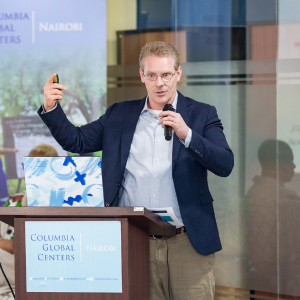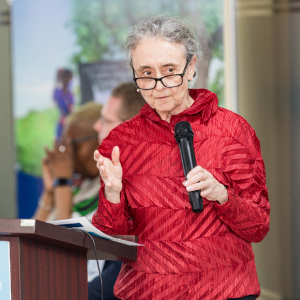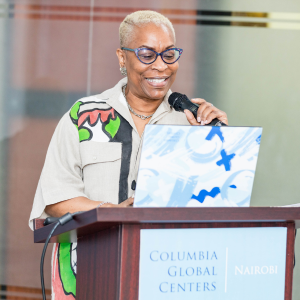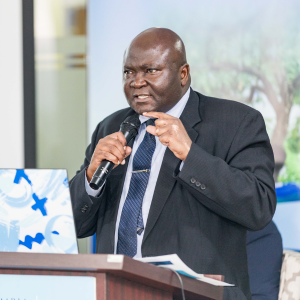Strengthening Security and Conflict Resolution Measures in Kenya
How can restorative practices be used to break cycles of violence and foster long-lasting peace?

From time to time, Kenya experiences various forms of violence concentrated in specific regions and among different populations. These forms of violence range from political violence, usually occurring around elections, to communal violence in border areas. Quite often, the critical question has always been - how can the country interrupt cycles of violence and create lasting peace?
Negotiation and Conflict Resolution
In response to this challenge, the Nairobi Center organized the Security Measures and Intervention Strategies in Kenya and Beyond its Borders conference to explore effective methodologies for creating a secure space where conflicting parties are not only encouraged to abandon retribution but also to embrace responsibility and respect, and relationship over individuality and selfishness. Michele Riley, Mark Whitlock, and Dr. Dianne Williams from the Columbia School of Professional Studies presented feasible ways of attaining this status, and Professor Maurice Amutabi from the Technical University of Kenya deconstructed their efficacy to the audience.

During an in-depth discussion on Conflict Early Warning and Response, Mark Whitlock highlighted two common challenges in conflict prevention: the assertion that "we did not know it would happen" and the acknowledgment that "we knew, but we didn't respond adequately." These challenges stem from factors such as limited data veracity, the complexity of forecasting, prediction challenges, and a lack of political will. Whitlock emphasized the critical need for a conflict early warning system, which would play a pivotal role in identifying and triggering actions to mitigate the onset, duration, intensity, and effects of various forms of political violence, ranging from communal conflicts to full-scale war. According to Whitlock, forecasting within these systems is not to dictate precise actions for decision-makers but to illuminate the potential consequences if no action is taken.

What then happens when a system of conflict, early warning and response, and political will is lacking? Michele Riley offered an alternative intervention strategy based on Civilian Oversight of Law Enforcement. This approach investigates, audits, or reviews internal law enforcement investigations or processes to identify underlying issues and causes. The thirteen underlying principles of Civil Oversight, including confidentiality, anonymity, and protection from retaliation, among others, are intended to enhance transparency, accountability, partiality, and the public's confidence in the policies in place. However, civilian oversight utilizes mediation, commonly applied to address less severe complaints, which leaves a gap in full-scale conflict and retribution cases, demanding more robust conflict resolution strategies.

Dr. Dianne Williams, thus advocated using restorative practices in incidents involving conflicting parties. Unlike merely addressing the symptoms of conflict, these practices delve deeper to understand the root causes of inappropriate, illegal, and anti-social behavior. Thus, restorative practices address the conflict's symptoms, not just the problem. Dr. Williams emphasized the importance of creating a safe space for conflicting parties to recognize their similarities and explore alternative approaches to how they would have done things differently to prevent conflict. This process unveils the impact of entrenched negative perceptions perpetuated by the media and politicians. Strategies to embed these practices include impromptu conversations, restorative circles, harm circles, and restorative conferences. These approaches encourage empathetic communication, active listening, relationship-building, and heightened social awareness, ultimately addressing minor, protracted, and intractable conflicts.

Professor Maurice Amutabi emphasized the need to strengthen existing conflict, early warning, and response systems in Kenya while advocating for civilian oversight of law enforcement and the enforcement of restorative practices to break cycles of violence. While acknowledging the significance of an early warning system, he noted that conflicts often arise in the country, particularly during general elections, due to discrepancies between predictions from diverse institutions and the actual outcomes. While supporting the civilian oversight approach, he emphasized the necessity for increased transparency and accountability in collaboration with the police. Amutabi asserted that implementing restorative practices would address the roots of conflict, extending beyond immediate causes to address historical factors, leading to long-lasting peace in the country.